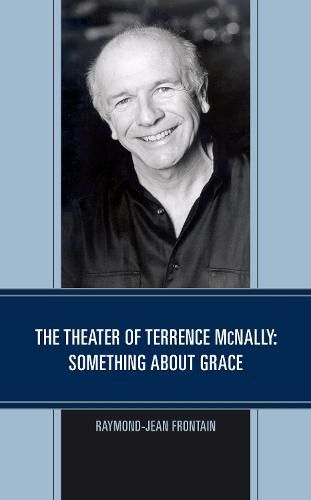Readings Newsletter
Become a Readings Member to make your shopping experience even easier.
Sign in or sign up for free!
You’re not far away from qualifying for FREE standard shipping within Australia
You’ve qualified for FREE standard shipping within Australia
The cart is loading…






Terrence McNally’s canon of plays, books for musicals and opera libretti possesses such a breadth of subject matter and diversity of dramatic modes that critics have had difficulty assessing his accomplishment. This book is the first critical study to identify the four major stages of McNally’s development in terms of his understanding of how theater helps the modern person trapped in a seemingly profane existence to find a gateway to the transcendent. Drawing upon such diverse religious thinkers as Martin Buber, Mircea Eliade, Ilia Delio and Carter Heyward, Frontain analyzes the evolution of McNally’s understanding of grace, not as a gift bestowed by an all-powerful deity upon a desperate soul, but as the unwarranted-and, thus, all the more unusual- act of devotion (McNally’s phrase) that one person performs for another. By seeking to foment community, most importantly at the height of the AIDS pandemic, McNally’s theater itself proves to be a channel of grace. McNally’s greatest success is shown to be the creation of a theater of empathy and compassion in contradistinction to Artaud’s theater of cruelty and Albee’s Americanization of the theater of the absurd.
$9.00 standard shipping within Australia
FREE standard shipping within Australia for orders over $100.00
Express & International shipping calculated at checkout
Terrence McNally’s canon of plays, books for musicals and opera libretti possesses such a breadth of subject matter and diversity of dramatic modes that critics have had difficulty assessing his accomplishment. This book is the first critical study to identify the four major stages of McNally’s development in terms of his understanding of how theater helps the modern person trapped in a seemingly profane existence to find a gateway to the transcendent. Drawing upon such diverse religious thinkers as Martin Buber, Mircea Eliade, Ilia Delio and Carter Heyward, Frontain analyzes the evolution of McNally’s understanding of grace, not as a gift bestowed by an all-powerful deity upon a desperate soul, but as the unwarranted-and, thus, all the more unusual- act of devotion (McNally’s phrase) that one person performs for another. By seeking to foment community, most importantly at the height of the AIDS pandemic, McNally’s theater itself proves to be a channel of grace. McNally’s greatest success is shown to be the creation of a theater of empathy and compassion in contradistinction to Artaud’s theater of cruelty and Albee’s Americanization of the theater of the absurd.